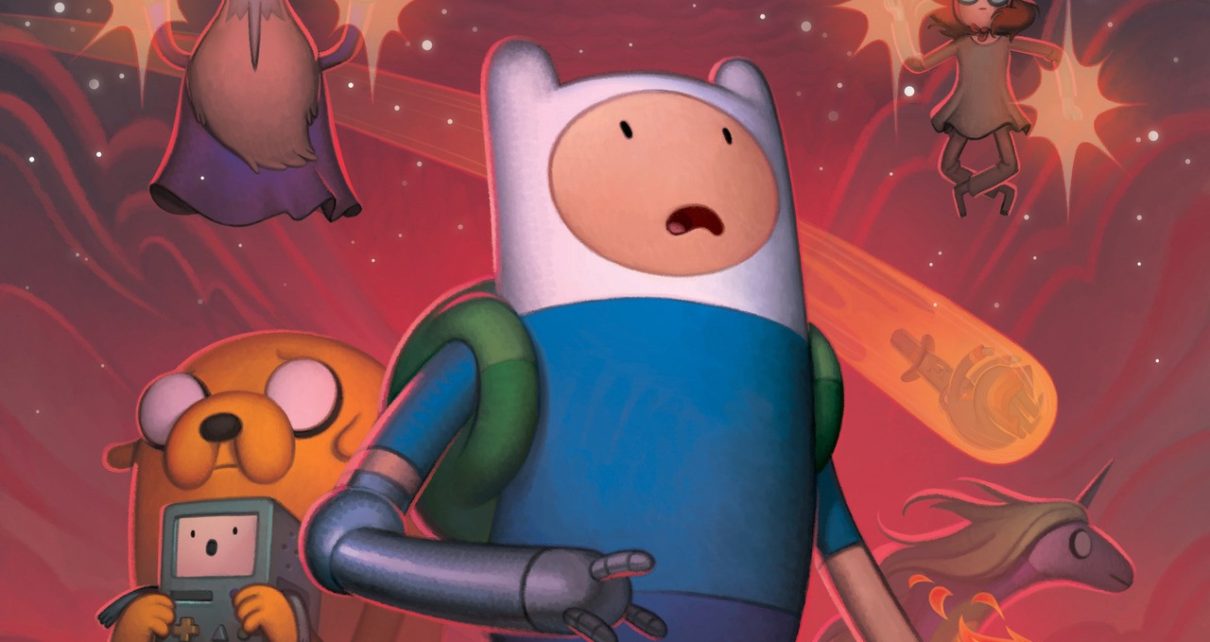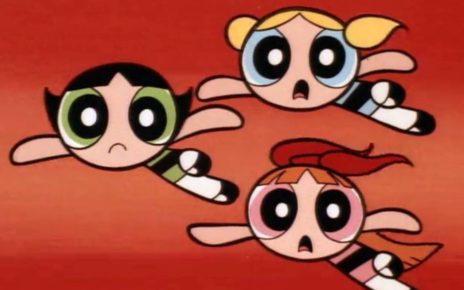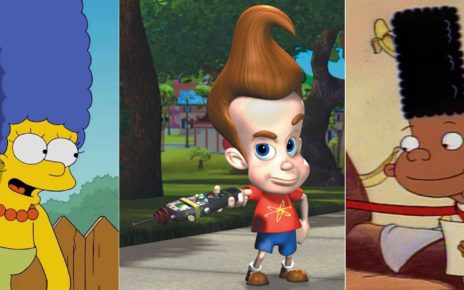
One evening as the sun went down
And the jungle fire was burning,
Down the track came a hobo hiking,
And he said, “Boys, I’m not turning—
I’m headed for a land that’s far away
Besides the crystal fountains.
So come with me, we’ll go and see
The Big Rock Candy Mountains.
— Harry McClintock
Adventure Time aired its finale on the evening of September 3, 2018. It landed well. In particular, it landed the ending well — and one reason why it landed the ending so well is because of how the show thinks (and has always thought) about the apocalypse.
Pick nearly any other work of art that deals with the apocalypse and you will see an art form where the apocalypse has a significant role in dictating the moral and social terms of what follows. The first World War changed the arts. The idea of the atomic bomb dictated the terms by which Bob Dylan wrote “A Hard Rain’s A-Gonna Fall” and how Cormac McCarthy went about writing The Road. Fear haunts Romero’s zombie movies. Explosions and battles fill Independence Day. And the news haunts Get Out, BlacKkKlansman, and others.
Adventure Time refuses to let the apocalypse — more specifically, a worldwide nuclear disaster that was the reason Earth became Ooo, not to mention all the threats to the world that follow — dictate the moral and social terms of what follows. It sees “the inclusion of all exclusions” (a phrasing coined by Niklas Luhmann) and ultimately responds with radically persistent openness as a matter of obvious course. As if it was never up for discussion in the first place. As if you were always going to be offered a fresh batch of bacon pancakes.
In the finale, two characters named Beth and Shermy discover a mechanical arm that once belonged to Finn the Human. They go to meet up with The King of Ooo to see if he can explain what the artifact is. That sets the story in motion, where we see Finn and Jake work to divert a war between Princess Bubblegum and her Uncle Gumbald. Part of that work involves sending Bubblegum, Finn, Jake, and Gumbald’s assistant Fern (Finn’s grassy double) to a dream world where they can work to diffuse their conflict. They do — only for a God-like creature named ‘Golb’ to come descending down from the heavens.
Golb is chaos incarnate. Golb has been summoned into the world by Betty in the hopes that the energy of ‘Golb’ will cure The Ice King and bring Simon back into the world. It takes being swallowed by Golb and BMO singing a song about how time is an illusion that doesn’t understand how moments work and that friendships work to do the trick, but — to do a great injustice by way of a summary — Simon returns, Golb is defeated, and the world is saved.
I love the duh-like tone with which BMO informs his visitors that the citizens of Ooo went on living their lives after these events, because of course they’re going to live their lives. It is a quietly bracing reminder of “showing, not telling” in what currently seems to be something of a “tell, don’t show” kind of world. Or, to put it another way: just as there is no apocalypse worth becoming a modern-day Romantic over (why Jonathan Franzen famously agitated for a return to a certain form of 19th-Century novel-making when the expectations of that time never really left us is beyond me), the characters of Adventure Time don’t need a Dickensian ending. They don’t need to be subjected to forced, expected melancholy. That’s not where the game is.
If you want an answer to where the game is, look at the end of the show once again: in the face of chaos; in the face of something that is interested in bringing into the world “the inclusion of all exclusions,” we instead end up on a nice day, our backs in the grass, listening to a voice deep within the earth sing, “Come along … with. me.”
The montage that follows along with the song jumps back and forth, showing us once again just how much fills this post-apocalyptic world — a Korean-speaking unicorn and a shapeshifting dog fly through the air; a penguin that has transformed into a bearded man marries a librarian; a giant demon trapped inside a child’s body poses with his diploma on the steps of a school; an intergalactic being grows uncomfortable as Simon speaks to him (potentially wishing for the return of Betty); a mural is painted on the ceiling; a Martian looks at the photo of his wife on his desk; and, at the end of it all — in the middle of a land that’s — to borrow a line from Harry McClintock,“fair and bright” — there is the boy who pulls a sword from a stone and lifts it up into the air.

Thanks for reading The Dot and Line, where we talk about animation of all kinds. Don’t forget to for this article and follow us on Twitter and Facebook.





